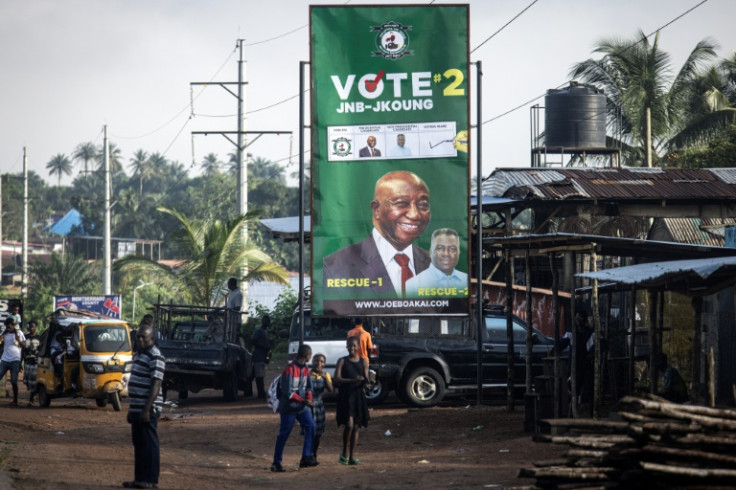Liberia Heading For Presidential Run-off

Liberia is heading for a rematch of the 2017 presidential runoff between incumbent George Weah and opponent Joseph Boakai, as official provisional results Tuesday placed them neck and neck.
With more than 94 percent of ballots counted, Boakai, 78, won 43.70 percent, while Weah, 57, a former international footballer who is running for a second term, gained 43.65 percent, according to results published by the national electoral commission.
The two men were well ahead of the 18 other presidential candidates in the first round of voting in the West African nation on October 10.
Ballot counting is now complete in nearly 93 percent of polling stations, the commission said on its website.
The figures indicate that neither Weah nor Boakai, who was vice president from 2006 to 2018, is set to secure enough votes for an absolute majority and be elected in the first round.
A run-off is planned for two weeks after the announcement of official results but could be delayed by possible appeals.
First elected six years ago after beating Boakai in a run-off, Weah is popular among many young people.
Others, however, are disappointed with his first term, accusing him of breaking his promises.
Living conditions have not improved for many of the nation's poorest, and corruption levels have risen.
The United States has sanctioned five senior Liberian officials for graft over the past three years.
Boakai has been a key figure in national politics for almost four decades. He has promised to restore the country's image, develop infrastructure and improve the lives of the most disadvantaged.
He has forged alliances with local figures, including former warlord and senator Prince Johnson, who supported Weah in the last election and remains influential in the key county of Nimba.
Boakai largely dominated the county this year, as well as Lofa county, where he comes from.
The run-off promises to be a close contest between the long-standing adversaries.
The results of the first round suggest that the campaign will be hotly contested.
According to Abdullah Kiatamba, an independent analyst, whoever comes out on top in the first round will have the advantage of greater momentum.
He warned of the risk of violence in the second round.
"Their passion is going to be fierce," he said.
Liberians turned out en masse to vote in the first round, with no major incidents.
During the campaign period, however, clashes between supporters of the ruling party and opposition supporters led to several deaths, notably in Lofa county, and have raised fears of post-election violence.
International observers, who were present in large numbers, have congratulated the electoral commission on the smooth conduct of the first round.
However, the West African bloc ECOWAS warned against any premature declaration of victory, and said it would crack down on any instigators of violence.
The vote was the first to be held since the United Nations ended its peacekeeping mission in Liberia in 2018.
The mission was created after more than 250,000 people died in two civil wars between 1989 and 2003.

© Copyright AFP 2024. All rights reserved.





















